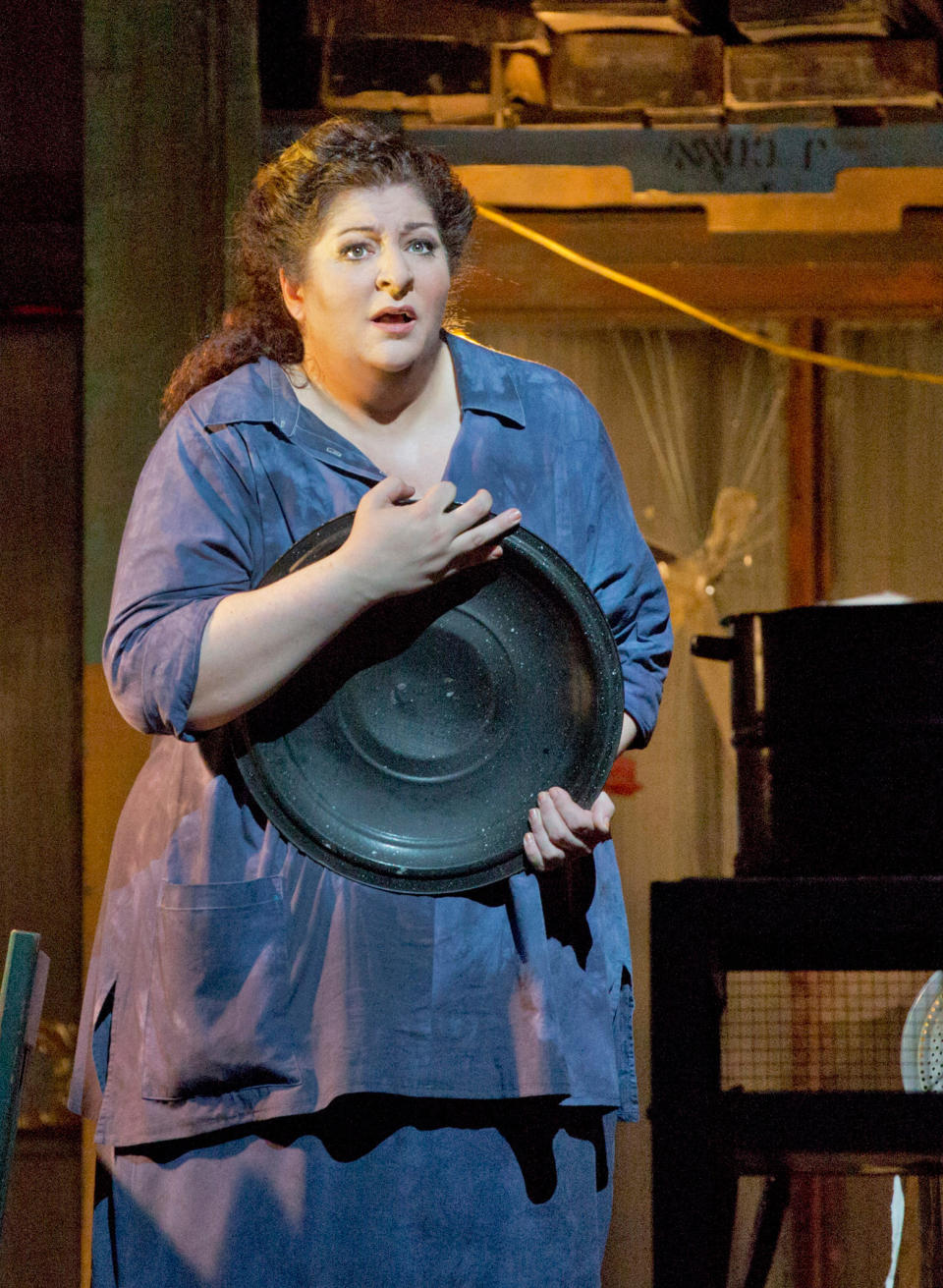Goerke returns to Met Opera in glory
NEW YORK (AP) — Here's what Christine Goerke did when she finished her first performance at the Metropolitan Opera in nearly five years: She came out for her solo bow — and promptly burst into tears.
The opera was Richard Strauss' monumental fable "Die Frau ohne Schatten," ("The Woman Without a Shadow") and Goerke was cast in a notoriously difficult dramatic soprano role, the discontented Dyer's Wife.
When she emerged for her curtain call, the audience erupted into a sustained frenzy of cheering and foot-stomping the likes of which has rarely been heard at the Met in recent years. Goerke stood as if in disbelief, then put her hands up to cover her face.
"Nothing could have possibly prepared me for that . the wall of sound literally knocked me backwards," Goerke said in an interview at the Met this week. "And I felt so ridiculous because I burst into tears. And that's not very diva-like. And I think I must have just been in a stupor for the rest of the entire thing."
The critics were as ecstatic as the audience. Writing in the New York Observer, James Jorden called her "the breakout star of the night" and added: "This astonishing performance of an all but unsingable role marks Ms. Goerke as a major dramatic soprano; the Met is blessed to have her on board."
For Goerke, the triumph earlier this month was a validation of her decision to move from lighter lyric repertory into the heavier dramatic realm of Strauss and Wagner. Now 44, she had already enjoyed what she calls "a decent career" in Handel, Mozart and Gluck.
"My voice was always a bit big even for those roles," she said. "From the time I was 24 years old, my coaches and I talked about the fact that there might be something dramatic happening. But nobody's a dramatic anything at 24. Your chords have to develop, your body has to develop, your musicianship has to develop, you have to understand what you're doing."
The change, when it came, took her by surprise.
"I noticed it during the run of 'Alcina' at City Opera (in 2003)," Goerke said. "Handel always felt easy and comfortable, and it didn't feel easy. I went home and told my then-fiance: 'I broke it.' . And it turned out that in fact, my voice was just changing . and I had disconnected from my support, because my voice got so big and I was trying to keep it very slim."
Once she corrected the problem, she said, her voice became "immediately twice the size, then three times, and my coach said, 'My God, there's still more in there!' It wasn't something that was broken, just something I had to grow into."
At the same time, Goerke was growing into a new personal life. She married her fiance (whom she affectionately refers to as "a tone-deaf construction worker") and had two children, girls now 4 and 7. Her reincarnation as a full-fledged dramatic soprano began when she sang the title role of Strauss' "Elektra" in Madrid in 2011, a part she has reprised in Chicago and London.
But coming back to the Met was special. Born on Long Island, she had apprenticed with the Met's program for young artists. Her Met debut came in 1995 and she sang there regularly for a while. But since 2004, her only appearances had been in 2009 as the Foreign Princess in Dvorak's "Rusalka."
"Singers should never think of a house as a 'home' because it's all business," Goerke said. "But this will always be home to me. I grew up here."
Within days of the "Frau" opening, the Met announced it had signed her to sing Bruennhilde in Wagner's "Ring" cycle in 2018-19, as well as to appear in "Elektra" and as Ortrud in Wagner's "Lohengrin." Other "Ring" cycles are on her calendar, including one in Houston. And she's studying new roles, among them Isolde, Lady Macbeth and Cassandra in Berlioz's "Les Troyens."
And she looks forward to many years of singing at the top of her game.
"It's very rare at 44 to be able to say I'm a baby," Goerke said. "It's just at the beginning of where things start to get comfy in this repertoire."
___
http://www.christinegoerke.com/



